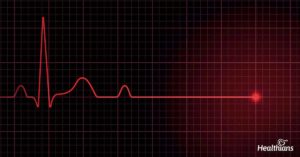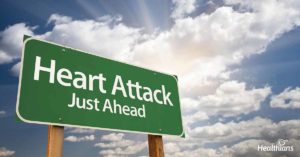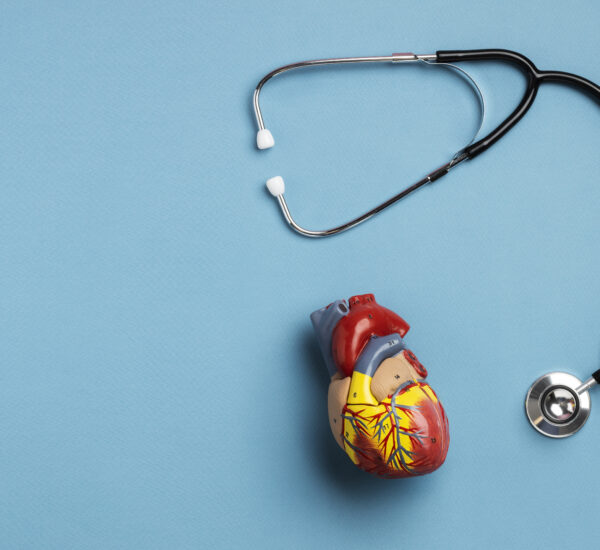Contributed by – Healthians Team
Did you know that cardiac arrest and heart attack are two different things?
Almost 70% of the cardiac arrest cases are caused due to underlying heart blockages. The last decade has experienced a sudden spike in the number of cases of cardiac arrest. Just the thought of cardiac arrest is extremely frightening and the fact that cardiac arrest often occur without any warning makes it even more scary.
Knowing about cardiac arrest can enable us to identify it and act immediately to avoid the mishap. Thus, it becomes extremely crucial to explore the disorder, it’s causes and how can it be avoided or dealt with. Let us understand all there is about cardiac arrest.
What Is A Cardiac Arrest?
Cardiac arrest is sudden stopping of the heart or the cardiac activity. In most of the cases cardiac arrest is fatal. The pumping of the heart is suddenly affected due to electrical changes in the rhythm of the heartbeat. As the pumping stops, blood does not reach the brain and other parts of the body. This makes the person struggle for breath and become unresponsive within minutes. This is a very serious medical emergency and immediate CPR (cardiopulmonary resuscitation) can help in revival of the patient.
Cardiac arrest almost always occurs in an unexpected situation and can also affect young people. Identified with almost no symptoms it occurs in an instant causing the person to collapse. Some of the important visible symptoms that are indicator of a cardiac arrest include:
- Dizziness
- Shortness of breath
- Fatigue
- Palpitations
- Sudden collapse

How Is Cardiac Arrest Different From Heart Attack And Heart Failure?
The most commonly asked question that also causes a lot of confusions. Quite different from heart attack or heart failure, cardiac arrest is often misunderstood. It is important to identify one from the other to manage the crisis situation accordingly.
Cardiac arrest is a condition caused by malfunction in the electrical signals of the heart which brings a sudden halt to the normal heart beat rhythm. The stopping of the heart means that there is no blood supply to the other body parts, oxygen does not reach the brain. This causes inability to breathe, loss of consciousness and can be fatal if not revived within a few moments.
Cardiac arrest is different from a heart attack and a heart failure, let us discuss at length.
Heart Attack Or Myocardial Infarction
A condition in which the blood flowing to a part of the heart is blocked. It is considered as a circulatory problem and occurs due to clogged arteries or when a blood clot suddenly blocks the arteries. This causes insufficient blood supply to that particular part of the heart which can permanently damage the cells of that part of heart. The heart does not stop beating but damage is caused to the heart and effects the efficient functioning. The blockage in the arteries needs to be treated on time to improve the circulation process and prevent further damage.
This may occur suddenly or may take few days or weeks for the symptoms to develop before the actual heart attack. The symptoms include:
- Tightness in the chest
- Feeling of pressure over the chest region
- Uneasiness
- Shortness of breath
- Difficulty in breathing
- Nausea
- Vomiting
- Pain in jaw, neck and upper back
In a lot cases heart attack can be sudden, intense and cause electrical changes resulting in cardiac arrest. Cardiac arrest has many causes and heart attack is one of them. However, although interlinked, both conditions are very different.
Heart Failure Or Congestive Cardiac Failure
A condition in which the heart is unable to pump sufficient amount of blood for the body. It is usually related to a weakened heart muscle caused due to repeated heart attacks or other heart disorders. The risk factors of heart failure includes:
- Heart conditions
- Previous heart attacks
- Cardiomyopathy
- Diabetes
- Thyroid problems
- Anaemia
- Lung disorders
It is a serious condition but with proper and timely treatment, the person can survive and lead a normal life. Heart failure differs from cardiac arrest as the heart does not stop beating but the amount pumped out is insufficient due to a weak heart. This too can trigger electrical changes and result in cardiac arrest.

Who Is At A Risk Of Cardiac Arrest?
People who have heart problems congenital heart disorders are at a high risk. Those who have previous history of heart attacks are at a greater risk due to scarring, which can trigger electrical changes causing cardiac arrest. The initial six months periods after heart attack are very crucial and appropriate care must be taken to protect and prevent complications.
While the role of cholesterol is still being studied, higher lipid levels in blood is definitely one of the risk factors for cardiovascular diseases. Type 2 diabetes can also increase the risk of sudden cardiac arrest. Sleep deprivation, hypertension, diabetes, obesity, smoking, faulty dietary habits and lack of physical activity too can contribute to increased risk of metabolic disorders and heart problems.
Causes Of Cardiac Arrest
Cardiac arrest is mainly caused due to heart related conditions, while there are some other causes too. Some of the commonest causes of cardiac arrest include:
- Disorders of the heart muscle – cardiomyopathy or thickened heart muscle, myocarditis which is inflammation of the heart
- Disorders of the heart conduction and abnormal heart rhythm
- Coronary heart diseases, heart attack or scarring from previous heart attack
- Congenital heart disorders, abnormalities in blood vessel or arteries and disease of the heart valve
- Overdose of certain medications – Some heart medications too can cause electrical changes in heart. Use of recreational drugs too can cause cardiac arrest in some people
- Excessive exercises causing increased cardiac demand and pumping up of adrenaline
- Severe blood loss
- Drowning
- Electrocution
- Obesity
- Unhealthy and sedentary lifestyle
- Hypertension
- Diabetes
- Smoking
Steps For Prevention
Heart problems like cardiac arrest are in most cases fatal, it is always better to opt for some healthy lifestyle changes to prevent such health conditions. Some of them are:
- Balanced lifestyle – Follow a healthy, active lifestyle with a balanced diet and adequate sleep. Avoid smoking, alcohol and maintain ideal body weight.
- Regular check-ups – Medical advice, taking medicines as advised, monitoring blood pressure and weight helps. Electrocardiogram (ECG) determines electrical signals of the heart and chest x-ray, echocardiogram, stress test are done if advised.
- Blood tests – Blood tests that detect cardiac health risks and inflammation are often advised. Lipid profile and CRP (C-reactive protein) is often done. Know your risk of cardiac disorders, diabetes, thyroid and high cholesterol with these blood tests.
In an event of sudden cardiac arrest, emergency medical aid, CPR or compressions to the chest can help prevent further damage and the person can be saved.
There is nothing more valuable than your health, do not trade your health for anything. Start paying your health the attention that it deserves.




